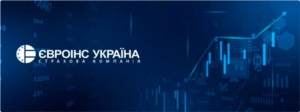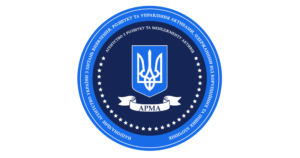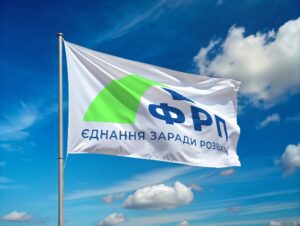
The International Finance Corporation (IFC) and OTP Leasing, the largest company in the Ukrainian market, have announced the launch of a EUR50 million risk sharing facility (RSF) to increase financing for small and medium-sized enterprises (SMEs) as well as mid-cap companies in Ukraine for energy and energy efficiency needs.
“This initiative aims to finance sectors such as agriculture, manufacturing, trade, energy, and logistics, focusing primarily on sustainable energy solutions that enhance Ukraine’s energy resilience,” the IFC said in a press release on Friday.
Under the RSF, the IFC will assume up to 50% of the credit risk for a maximum amount of EUR 25 million. The project’s 10% capital cost compensation mechanism (up to a total of EUR 6 million) will encourage lessees to choose sustainable solutions over more polluting alternatives.
It is noted that against the backdrop of Russia’s invasion and high risk, private sector lending has declined, with corporate lending falling from 12.8% of GDP in 2021 to 9.2% of GDP in 2024, while the leasing sector, as a critical alternative to lending, contracted by 59.4% in 2022 and has only partially recovered thanks to support from the state and assistance from international development finance institutions.
In addition, since the start of the Russian invasion, Ukraine has lost almost two-thirds of its power generation capacity, highlighting the need for decentralized and sustainable energy systems.
“Thanks to the current RSF, OTP Leasing will be able to offer more leasing deals to traditionally underfinanced SMEs and mid-caps in Ukraine that prioritize small-scale renewable energy generation and energy-efficient sustainable projects, particularly climate-smart agriculture and green transport,” the IFC noted.
IFC’s participation in the RSF and the capital cost compensation mechanism are supported by the IFC’s Economic Resilience Action Program (ERA) for Ukraine, funded by the UK Department for International Development with EUR10 million.
Andrew Okenden, the UK’s Chargé d’Affaires in Kyiv, noted that the UK strongly supports Ukraine’s green and sustainable economic recovery, and that this approach reflects the key priorities of the 100-year Partnership Agreement signed by Prime Minister Keir Starmer and President Volodymyr Zelenskyy earlier this year.
According to IFC Regional Manager for Ukraine Lisa Kestner, the new agreement will increase access to finance for Ukrainian businesses, particularly in critical sectors such as agribusiness, manufacturing, and logistics. “Our initiative will help businesses invest in sustainable energy solutions such as climate-smart agriculture, small-scale renewable energy generation, and energy efficiency projects,” she emphasized.
Since February 2022, IFC, as part of its Economic Resilience Action Program (ERA) for Ukraine, has provided $2.5 billion in support to Ukraine’s private sector, including $940 million in mobilized financing.
According to IFC, as of March 31, 2025, OTP Leasing had approximately 33.6% of the Ukrainian market share in terms of leasing portfolio ($330.5 million in outstanding lease transactions). The company provides financial leasing and fleet management services to SMEs and mid-caps throughout the country. The company is wholly owned by Hungary’s OTP Bank Plc.

IC “Euroins Ukraine”, a subsidiary of the European insurance group Euroins Insurance Group (EIG), in January-June 2025 collected UAH 638,9 mln of insurance premiums, which is by UAH 334,7 mln or 2,1 times more than in the same period of 2024. According to the press-release of the insurer, the largest volume of premiums came to the key direction of the company’s business, automobile insurance – UAH 541,8 mln. According to the MTSBU, in the first half of the year “Euroins Ukraine” took the 4th place in the MTPL market by the number of issued policies (216 thousand).
The volume of indemnities paid to the clients of Euroins Ukraine for 6 months of 2025 amounted to UAH 188,4 mln. On average, the company paid out about UAH 1 mln per day on insured events in the first half of the year.
According to the Chairman of the Board of “Euroins Ukraine” Andriy Yakovenko, good results are the work of the company’s representative offices throughout the country.
IC “Euroins Ukraine” is a universal non-life insurer, working in the Ukrainian market since 1992. The company has 75 representative offices all over the country, has a license for insurance in 16 classes. It actively operates in the segments of auto insurance, medical insurance, property, liability and cargo insurance for private and corporate clients.
IC “Euroins Ukraine” is a member of the Motor (Transport) Insurance Bureau of Ukraine, League of Insurance Organizations of Ukraine (LIOU) and EBA (European Business Association).

Issue No. 1 – August 2025
The purpose of this review is to provide an analysis of the current situation on the Ukrainian currency market and a forecast of the hryvnia exchange rate against key currencies based on the latest data. We analyze current conditions, market dynamics, key influencing factors, and likely scenarios.
Analysis of the current situation on the Ukrainian currency market
The first ten days of August and the beginning of the second were marked by a number of data and decisions that set the tone for the exchange rate in the coming weeks. As before, external factors dominate, while internal factors mostly generate situational impulses and slight volatility without changing the long-term trend.
International context
UNITED STATES. July inflation slowed to within expectations, with prices rising by 2.7% yoy and core inflation (excluding food and fuel) by 3.1%, fueling expectations of a Fed rate cut in September and giving the dollar a brief respite after strong macro statistics in previous periods. The labor market has also cooled: nonfarm payrolls were weaker and unemployment rose, further increasing the likelihood of a dovish scenario for the Fed. Taken together, these factors reduce the so-called USD tightening premium over the next few weeks, at least until the Fed makes clear signals about its future policy.
Eurozone. The flash estimate of the Harmonized Index of Consumer Prices (HICP) published by Eurostat for July was 2.0% y/y (stable), which preserves the ECB’s argument for gradual cautious easing later this year. The final GDP estimates for the two quarters confirmed weak but still positive growth. For the euro’s future trajectory, this is more of a neutral or moderately negative signal in isolation from other drivers, as there was no hawkish surprise.
The UK sent its own signal to the global currency tone – its central bank cut its policy rate by 25 bp to 4.0%, signaling the start of monetary policy rebalancing by other major economies outside the US and the euro area and creating expectations for a broader rate review, provided that other macro indicators confirm this policy. In general, such processes soften the dollar’s advantage in the basket of global currencies over the next 1-2 months, if the Fed moves in the same direction.
The global energy factor has not yet provided any impetus for key economies to revise their policies. Market expectations for oil prices have not changed dramatically, and current quotes fully reflect the news background of recent weeks: the supply/demand balance does not add to inflationary tensions in the EU, so it is not a factor that would force the ECB to tighten its policy. This will also work against further euro appreciation. The expected trajectory is for a neutral or moderately downward impact on the euro, provided there are no other signals or data that could restrain or reverse the current trend.
Thus, given the current international backdrop, the USD has fewer reasons and drivers to strengthen in the short term, while the EUR is more likely to experience a sideways move.
The key factors in the near term will be the September Fed rate decision and further actions by the central banks of the world’s major economies: the expected convergence of rates in the leading economies reduces the US yield advantage, which means that the dollar’s advantage is melting away, but the euro is not getting its new driver either.
Domestic Ukrainian context
Reserves and interventions. The National Bank of Ukraine’s international reserves remain high, despite the NBU’s significant foreign currency sales and debt repayments. Despite the decline, the reserve cushion remains sufficient to smooth out fluctuations and maintain a controlled exchange rate dynamic.
Inflation. In July, inflation slowed to 14.1% year-on-year (yoy), and for the first time in two years, deflation was recorded at -0.2% on a monthly basis. This reduces short-term price risks and inflationary premiums in the pricing of importers/retailers. For the hryvnia exchange rate, these factors are neutral or moderately calming, as they eliminate the arguments for a sharp “insurance” demand for the currency.
External support is coming in as expected, which supports the basic set of factors for a stable hryvnia scenario. The EU Council’s decision to disburse another fourth tranche of more than €3.2 billion under the Ukraine Facility is an important reinforcement of fiscal stability and FX liquidity for the fall months. This indirectly reduces the risks of hryvnia volatility in the foreign exchange market.
A new step in currency liberalization by the NBU is a positive signal of stable expectations of the market and the regulator. In early August, the NBU allowed the repatriation of dividends and expanded hedging instruments, as well as simplified a number of technical FX transactions. Structurally, this reduces market risks and improves predictability for businesses without a sharp additional demand for foreign currency, which also removes pressure on the exchange rate.
The Ukrainian market is entering the second half of August with a preserved exchange rate consensus: reserves are sufficient, external financing is confirmed, inflation has cooled, and liberalization is dosed and managed. Domestic factors will continue to give short bursts, but the overall direction will still be determined outside Ukraine – by international data and decisions, primarily those of the US and the EU.
US dollar exchange rate: dynamics and analysis
General characteristics of market behavior – calm and narrow corridor
In general, the Ukrainian FX market is in a calm phase: international factors do not provide drivers for sharp changes, while the NBU’s measured interventions and liberalization keep market volatility and manageability low. Domestic demand is not driven by hype or accumulative drivers, importers act as planned without provoking abnormal surges, and market operators’ “insurance” margins are smaller or practically absent in the UAH/USD quotes.
Forecast.
Euro exchange rate: dynamics and analysis
General characteristics of market behavior – reflection of the euro to hryvnia exchange rate on external factors
After a long, smooth slide in the buy range of 47.85 to 47.75 and sell range of 48.65 to 48.45, the exchange rate rebounded sharply on 13-14 October: buy range of 47.90 to 48.20 and sell range of 48.50 to 48.85. The official NBU exchange rate rose by a one-day jump from 48.0758 to 48.6472, up UAH 0.58.
A steady downward trend was observed for thirty days, which was interrupted by a corrective recovery on August 13-14.
For most of the period, market rates were equidistant from the official one (the classic corridor), and the bid/ask spread remained at ~0.50-0.70 UAH/€, a sign of stable expectations and lack of nervousness.
The recorded rebound was the result of an external impulse (movement in the EUR/USD pair on the global market after the US statistics) and was quickly reflected in the EUR/UAH market quotes.
Such episodes do not indicate an imbalance, but only the expected technical alignment between the external and internal markets without changing the overall trend – data from the US and eurozone statistics allowed the EUR to make a technical rebound, but the market has already played off this momentum, so without new significant data from the US or the EU, we should not expect further growth in the euro against the hryvnia.
Domestic demand will also not be able to drive the growth of quotations due to the speculative component of setting rates by market participants – after the overheating of June and July and the exhaustion of effective demand, interest in cash euros has cooled. Importers are acting in a planned manner, which smooths out the overall pressure on the market and helps to normalize spreads.
Forecast.
Recommendations: act in ranges, keep liquidity, hedge risks
Key universal ideas:
– On the short term: USD has fewer reasons to strengthen, EUR is more likely to be sideways with technical bounces.
– Liquidity over profitability: keep a stock of free currency for current needs, term instruments only with the option of early access with minimal losses.
– A universal strategy for everyone – flexibility, trenching, hedging.
– Plan in ranges, not points: include exchange rate corridors in your calculations and forecasts, not fixed numbers.
– Keep an eye on spreads: this is now a more important indicator than the exchange rate. Narrowing is the moment to optimize purchases/sales, while widening is a signal to slow down.
– Risk management: Avoid large transactions and fixed commitments, avoid decisions based on emotions after news/social media – in the context of exchange rate calm, the media are trying to “squeeze clickbait out of nothing.”
For private investors and savers:
For speculative operations on USD/UAH & EUR/UAH:
– It’s time for short positions and quick action: record profits regularly in “small portions” and cut losses quickly.
– Watch out for “intersections” between the official and the market: a sudden jump in the official rate and narrowing spreads usually mean a technical lag and a quick “catching up” of the market – an opportunity for short positions / profit taking.
– Take care of liquidity: refrain from transactions or make smaller trades in an illiquid market (narrow choice of profitable offers, wide spreads), do not hold large positions before the release of important news.
This material was prepared by the company’s analysts and reflects their expert, analytical professional judgment. The information presented in this review is for informational purposes only and cannot be considered a recommendation for action.
The Company and its analysts make no representations and assume no liability for any consequences arising from the use of this information. All information is provided “as is” without any additional guarantees of completeness, obligations of timeliness or updates or additions.
Users of this material should make their own risk assessments and informed decisions based on their own assessment and analysis of the situation from various available sources that they consider to be sufficiently qualified. We recommend that you consult an independent financial advisor before making any investment decisions.
REFERENCE
KYT Group is an international multi-service product FinTech platform that has been successfully operating in the non-banking financial services market for 16 years. One of the company’s flagship activities is currency exchange. KYT Group is one of the largest operators in this segment of the financial market of Ukraine, is included in the list of the largest taxpayers, and is one of the industry leaders in terms of asset growth and equity.
More than 90 branches in 16 major cities of Ukraine are located in convenient locations for customers and have modern equipment for the convenience, security and confidentiality of each transaction.
The company’s activities comply with the regulatory requirements of the NBU. KYT Group adheres to the EU standards, having a branch in Poland and planning cross-border expansion to European countries.

Yaroslava Maksimenko, who was recently director of the property policy and sanctions department at the Ministry of Economy, and before that, she headed the then state-owned United Mining and Chemical Company (UMCC) for a certain period of time, and served as acting chair of the National Agency for Asset Tracing and Management (ARMA).
“Yaroslava is a specialist with many years of experience in law, state asset management, sanctions policy, and international cooperation. She headed the property and sanctions policy department in our ministry and worked continuously with assets that later ended up in ARMA, so she knows the system inside out,” wrote Economy Minister Alexei Sobolev on Facebook, introducing Maksimenko to the ARMA team.
According to him, the recently updated version of the law on ARMA, which has already come into force, has strengthened the agency’s institutional capacity.
“The new version of the law will strengthen the tools for managing seized assets, transfer strategic assets to state-owned companies, and allocate certain assets for defense and military rehabilitation. It will also ensure greater control through Prozorro and expand public reporting tools,” Sobolev explained.
He also recalled that the reform of ARMA is part of Ukraine’s commitments to its European partners under the Ukraine Facility.
“The top priorities for ARMA now will be to conduct an independent audit and a new competitive selection procedure for the head of the agency, which we will monitor closely,” the minister added.
According to Interfax-Ukraine and the declarations of the new head of ARMA, among other things, she was a member of the supervisory board of the Odessa Port Plant (OPZ) and the Nikolaev Thermal Power Plant, and until July 2021, she was the founder and head of the law firm Stalex and Partners, and now owns the LLC “Legal Company AS.”
Before Maksimenko, the position of ARMA deputy chair for European integration was held by former Georgian ambassador to Ukraine Grigol Katamadze. At the end of July, the government also dismissed the agency’s head, Elena Duma.

On August 14, the Entrepreneurship Development Fund announced its intention to conclude a contract with Colonnade Ukraine for executive liability insurance. According to the Prozorro electronic procurement system, the expected cost of the service was UAH 1.05 million, and the price offered by the company, the sole participant in the tender, was UAH 995,492.
Colonnead Ukraine Insurance Company (until 2016 – QBE Ukraine Insurance Company) was founded in 1998 as the first international insurer on the Ukrainian market. SCP Luxembourg S.A.R.L. owns 100% of the insurer’s shares.

Egypt has signed an agreement with China’s Sailun Group to build a car tire plant in the Suez Canal Economic Zone (SCEZ) with a total investment of $1 billion, according to a cabinet statement. The construction of the plant will take three years. The first phase is scheduled for completion in 2026.
The plant will eventually produce 10 million tires a year, Reuters quoted the government as saying.
The EZSC is a complex of six ports and four industrial zones located along or near a strategic waterway. The Egyptian government has granted the zone special legal and tax incentives. Meanwhile, the country is investing heavily in infrastructure to attract investors to the EZSC.